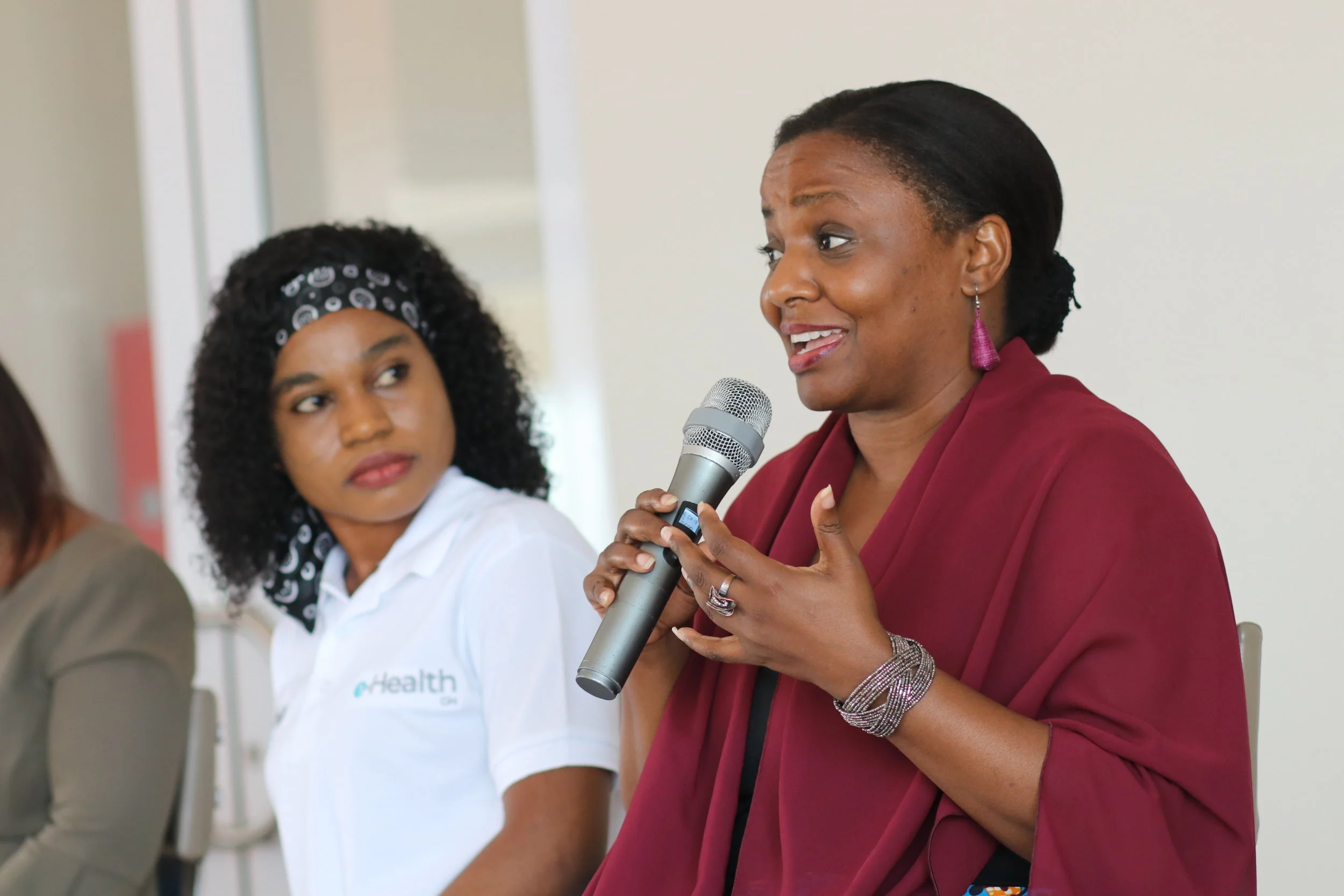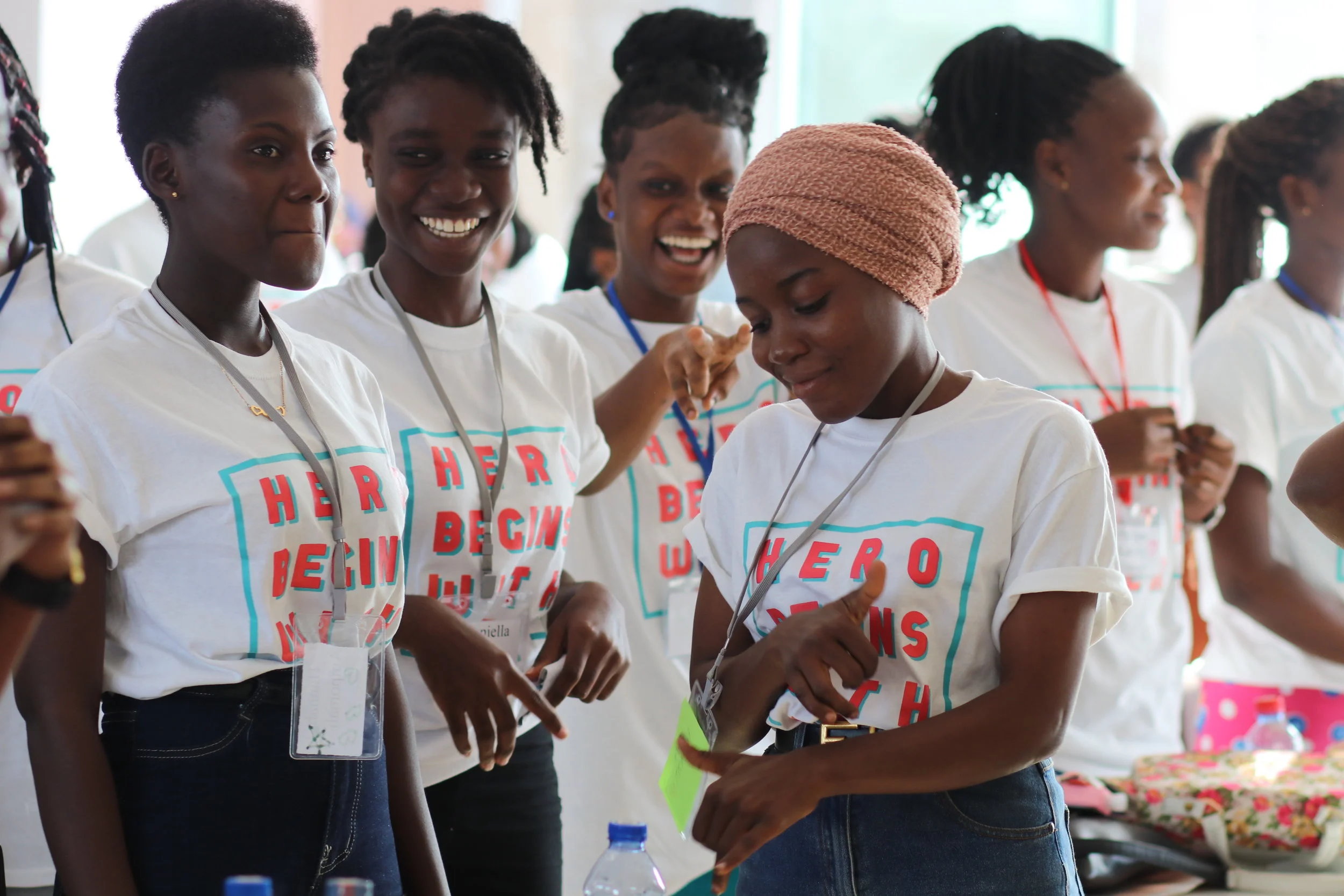STF Ashesi’s Women’s Leadership Summit attendees, wearing HERO Begins with Her tees, benefiting STF
Earlier this year in celebration of International Women’s Day, the STF Ashesi Campus Chapter organized a Women’s Leadership Summit among young women from six universities in Ghana. The Ashesi chapter in particular consists many firsts in their own right: “On campus, our chapter is a community of people who are the first in their families to achieve certain milestones. From graduating high school, starting businesses, attending prestigious higher education institutions, or even hoping to take up positions of power in whatever professional field we find ourselves in. We aren’t just young leaders who continue to challenge the status quo on issues like gender, education, business, leadership and many more… Trailblazers seems more apt in describing ourselves.”
The event gathered more than 100 attendees—of all genders—with a theme of “inspiring women to lead, engage and pursue equality.” The conference touched on issues affecting women worldwide while also distinguishing the difference between gender equality and equity. Throughout the day, participants discussed inspiring ideas, shared knowledge on leadership (i.e., using collective voices over technology), and analyzed how to navigate the social, political, and economic ladder.
“We can only seek equality if we are empowered and are knowledgeable enough about it.”
Focusing on the 2019 International Women’s Day theme, #Balance4Better, STF Ashesi encouraged societies to pay attention to providing equal opportunities for all genders, especially in areas where female rights have been infringed on and opportunities are limited for girls. Dr. Esi Ansah, a lecturer at the university and the conference keynote speaker, addressed that “To be the first at anything, you will need to be ready to do something you have never done. You should be ready to get out of your comfort zone.”
The STF Ashesi chapter shared some of their most powerful takeaways from their Women’s Leadership Summit, in addition to breakout sessions focused on women in STEM, leadership building, and the power of storytelling:
College can be the most significant time for social, economic and political activism, and young women hold the potential for influence and advocating for gender equality.
Women’s empowerment and gender equality should be recognized throughout life, and not for just one day in the year.
Being a strong woman leader and activist can take a toll on wellbeing, if we forget to put our own oxygen masks on first. Instead, we can articulate how we feel and gain tangible skills, all while building strong leadership muscles.
Inside each of us is a constant unfolding narrative, a hero in a novel no one else can write. It’s time to share our own stories.
The STF Ashesi chapter is proof that change starts acknowledging the issues of gender inequality, and girls is unstoppable when equipped with the knowledge and leadership skills they need to be changemakers.










